A new survey reveals the true mistreatment of female MPs
Rosena Allin-Khan, the new Labour MP for Tooting, talks to Marie Claire
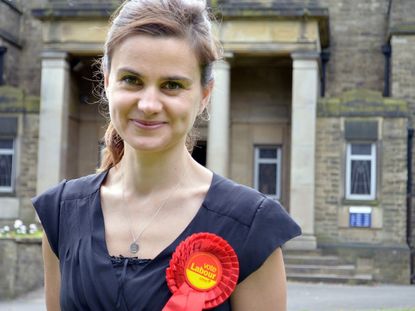
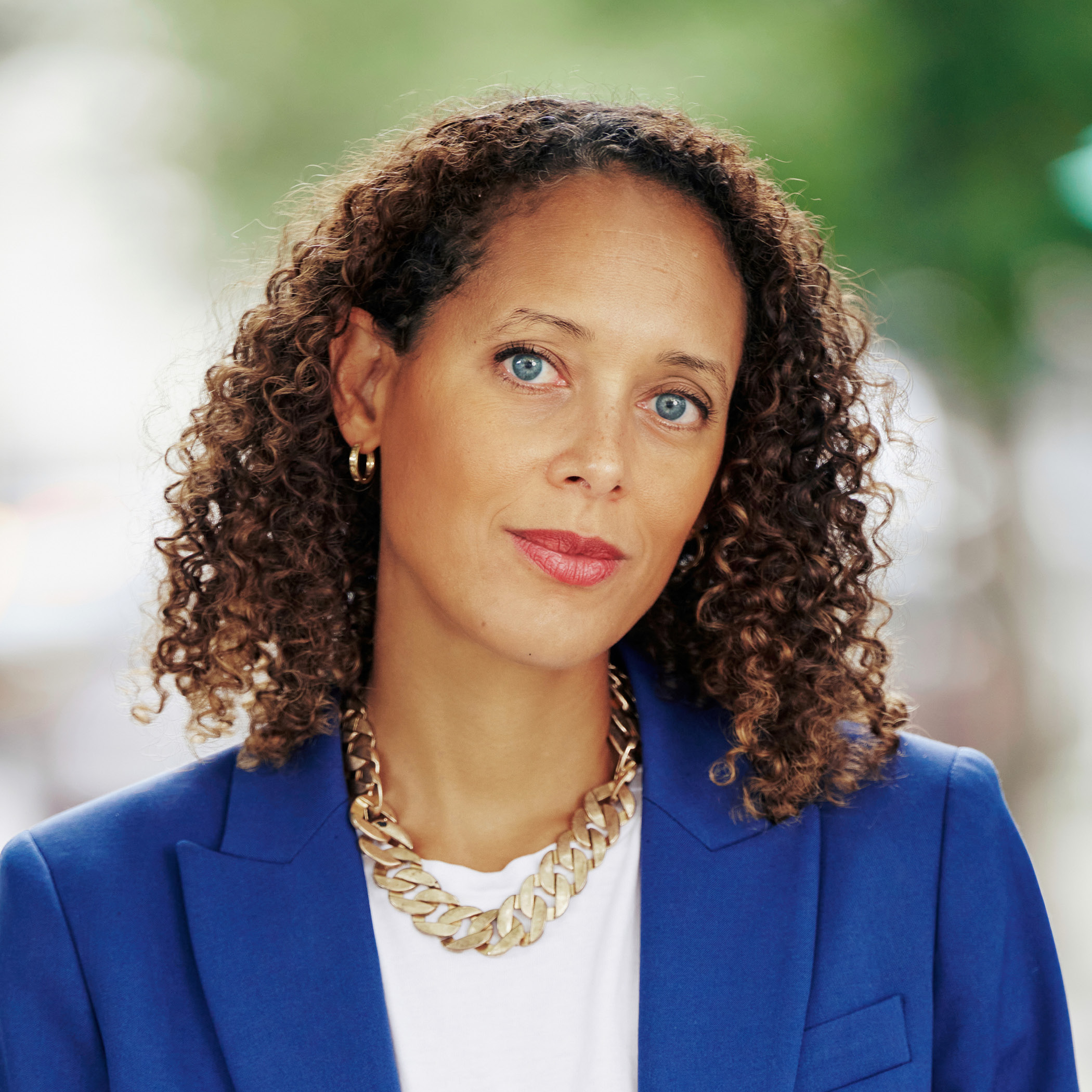
‘It is a fear I share, but the opportunity to stand up for the people I care about was too strong a calling to pass up.'
In a new survey, conducted by BBC Radio 5, it has been revealed that an overwhelming majority of female MPs have been the target of online and verbal abuse.
From online trolling and death threats to having their children targeted, two thirds of female MPs who took part in the survey have admitted to feeling unsafe, especially since the murder of Labour MP Jo Cox.
The past few years have seen a huge increase in the level of violence and abuse towards politicians, with several female MPs considering quitting the public role and fearing that it will stop other women from wanting to go into politics.
We spoke to Labour MP Rosena Allin-Khan about why the world needs more female MPs.
The down-to-earth 39-year-old was elected as Labour MP for Tooting on 17 June, filling the shoes of Sadiq Khan, who was elected as London Mayor in May. But her victory as the country’s 100th female Labour MP was overshadowed by the death of Jo Cox the same day (ironically, Allin-Khan is now the 99th). ‘We were devastated when Jo was killed,’ she adds. ‘As a mother of three-year-old and one-year-old girls, I started questioning what I was doing. My childminder sent me a picture of my two daughters playing and I just thought, “Is it the right thing?” I had to think seriously about why I was doing this.’
However, Allin-Khan says Cox’s death has made her more convinced of the role that women have to play in politics. ‘I want to make the world a better place, like Jo was doing. She fought for everything that was right and good. She found a magical way to combine family life with political life. She’d rush home to put the kids to bed and come back into Parliament in her cycling gear. She also invited her children for tea once a week in the Parliament restaurant.’
Marie Claire Newsletter
Celebrity news, beauty, fashion advice, and fascinating features, delivered straight to your inbox!
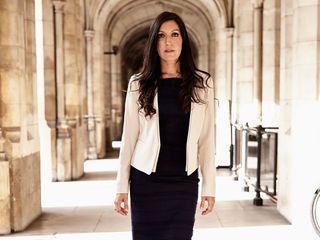
The killing of Cox, a Yorkshire-born mother-of-two, was perhaps a turning point in what had been a bitter and personal referendum campaign. Distrust and hatred of politicians was at fever pitch, but Cox’s death seemed to mark a point when people began to see them as human beings who put themselves in great personal danger to serve the public. It also made us more aware of just how vulnerable female MPs are in their frontline work in their constituencies.
Since the attack, a number of politicians have spoken out about the threats they’ve received on social media and the need for protection. Yvette Cooper retweeted a message she’d been sent from a Brexit campaigner who threatened to murder her children and grandchildren because of her stance on Europe.
As a mother of girls, Allin-Khan is concerned about the vitriol aimed at women via social media. She recounts one morning, waking at 4am to breastfeed her then six-month-old baby, and picking up the phone to discover her Twitter account had been targeted by trolls. She now keeps her social-media engagement to a minimum. ‘Many of my colleagues have been threatened on social media. It seems fair game for women to be targeted and that’s unacceptable.’
The real tragedy, however, is the fact that fear stops a huge number of females from starting a career in politics altogether. Allin-Khan has been approached by many women, telling her she’s ‘brave’ and that they’d love to do the same but are terrified of the repercussions. ‘It is a fear I share,’ she says. ‘But the opportunity to stand up for the people I care about was too strong a calling to pass up. We need role models; we’ve got to make women and girls believe anything is possible. If I can do it, anyone can.’
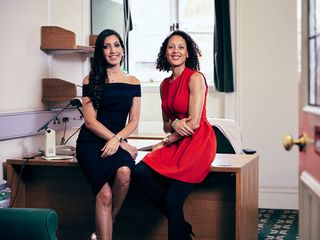
Allin-Khan herself had a strong role model in her mother – a Polish single mum who had separated from her Pakistani father and worked three jobs to put food on the table for her and her brother. ‘I was mixed race and came from a difficult background. I was made to feel that girls like me wouldn’t be able to go to medical school. And it was through my mum making me feel that she had faith in us that I could study medicine, and then have a political career.’
So what would she say if one of her own daughters announced she wanted to be a politician? ‘I’d want to know her reasons,’ she says, looking uncomfortable. ‘I may answer differently now from how I’d answer once I’ve been in the job a while, but whatever my daughters want to do, I’ll help them achieve their potential.’
Allin-Khan is very aware of her place in history as one of 191 female MPs out of 650. ‘If Jo hadn’t been brutally taken from us, I would have been the 100th Labour female MP. I’m also one of just a few minority ethnic women. It’s vital our Parliament is representative of the country and its diversity.’
She is also worried about the effect of Brexit on ethnic minorities. ‘Since the referendum result, hate crime has increased,’ says Allin-Khan. ‘I had campaigned hard for Britain to stay within the EU. I was so disappointed by the outcome.’
Cox’s legacy, says Allin-Khan, is about being courageous as a woman. ‘It’s about saying we need a voice, then standing up to be that voice, despite our fears about safety. That’s why I will continue to do this job, and why Jo did, too.’

Andrea Thompson is Editor in Chief at Marie Claire UK and was recently named by We are the City as one of the UKs top 50 trailblazers for her work highlighting the impact of Covid on gender equality.
Andrea has worked as a senior journalist for a range of publications over her 20 year career including The Sunday Times, The Guardian, The Daily Mail, Channel 4, Glamour and Grazia. At Marie Claire Andrea is passionate about telling the stories of those often marginalised by the mainstream media and oversaw a feature about rape in the Congo that won the title an Amnesty Media Award. She also champions women's empowerment, sustainability and diversity and regularly chairs panels and speaks at events about these topics. She sits on the committee of the British Society of Magazine Editors where she acts as Vice Chair and looks after Diversity and Inclusion. She regularly mentors young women from under represented communities trying to break into the media industry.
-
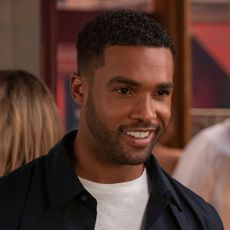 Emily in Paris' Lucien Laviscount is reported to be dating a very A-list singer
Emily in Paris' Lucien Laviscount is reported to be dating a very A-list singerBy Jenny Proudfoot
-
 Can you build muscle with bodyweight exercises? Here's what top PTs had to say
Can you build muscle with bodyweight exercises? Here's what top PTs had to saySpoiler alert: you can, but there are a few caveats.
By Rebecca Shepherd
-
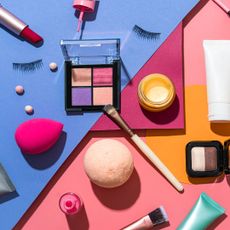 Not even I, as a beauty editor, can resist the temptation of 50% off at Cult Beauty - here are the 12 products I will be shopping
Not even I, as a beauty editor, can resist the temptation of 50% off at Cult Beauty - here are the 12 products I will be shoppingBy Katie Thomas